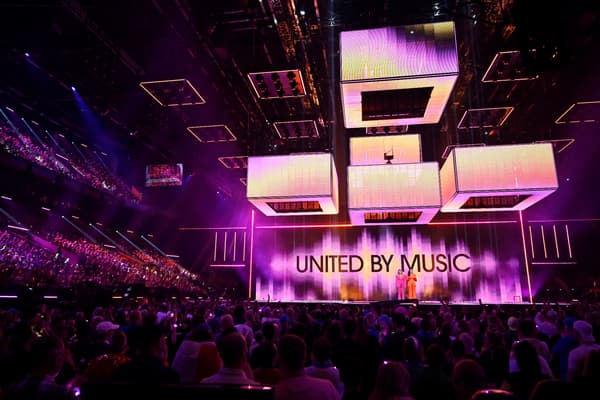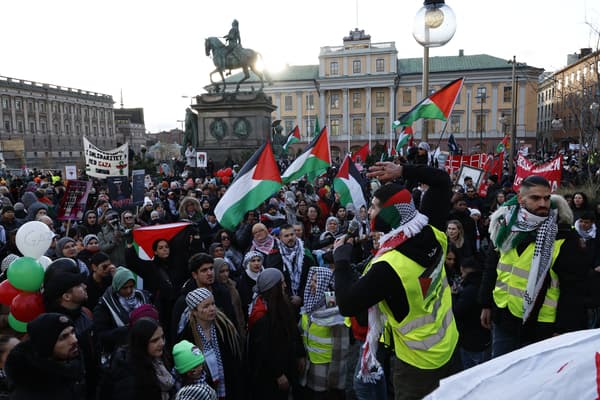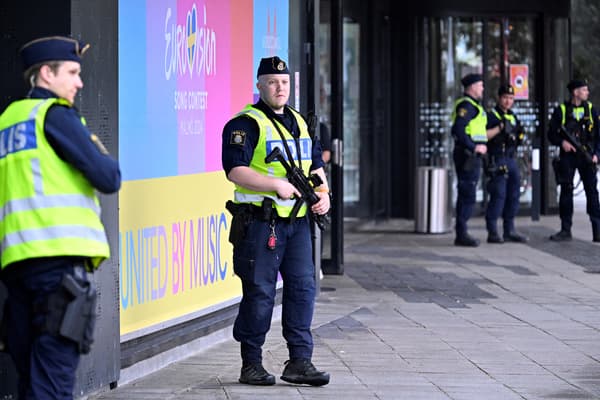This is the controversy that overshadows Eurovision 2024. This Thursday, May 9, in the Swedish city of Malmö, the singer Eden Golan will defend the colors of Israel during the second semi-final of the telehook with the firm intention of qualifying for Eurovision 2024. grand final . And this despite the controversy surrounding Israel’s participation in this 68th edition of the contest.
Because due to the response of the Netanyahu government on Gaza, launched after the massacre perpetrated in Israel by Hamas on October 7, many voices were raised against the presence of the Jewish State among the competitors. From boycott calls to exclusion requests, their presence has sparked several protests in participating countries in recent months. Critics denounce in particular a double standard based on the exclusion of Russia in 2022, after the invasion of Ukraine.
Escalation of violence
The first turbulence began to shake the Eurovision organization last December, two months after the terrorist attack during which Hamas killed 1,170 people on Israeli soil and took 240 hostages in Gaza. At that point in the conflict, a brief truce led to the release of 110 of them, in exchange in late November for at least 240 Palestinian prisoners held in Israel.
But fighting resumed on December 1, the day after a deadly attack in Jerusalem claimed by Hamas. Two weeks later, the death toll from Israeli retaliation is approaching 20,000 dead on the Palestinian side, according to Hamas Health Ministry figures (the death toll today stands at more than 34,000, according to the same source).
In this context, the petition arises from the FTT, an association of Icelandic artists, which asks its station not to participate in Eurovision unless Israel is excluded. A month later, a collective of 1,400 Finnish artists made the same request.

“An apolitical musical event”
After several speeches in favor of Israel’s participation, the Eurovision organizers have definitively ruled out the idea of its exclusion in mid-February. The European Broadcasting Union (EBU), in charge of the contest, recalls the apolitical DNA of telehook, the founding principle claimed by the contest in its regulations :
“The Eurovision Song Contest is a non-political musical event and a competition between public broadcasters that are members of the EBU. It is not a competition between governments,” Noel Curran, director general of the EBU, told AFP.
He also draws comparisons again with the exclusion of Russia, which occurred two years earlier, after the Kremlin’s invasion of Ukraine. “Comparisons between wars and conflicts are complex and difficult and (…) it is not up to us to establish them,” he says, before explaining:
“Israeli public broadcaster Kan complied with all competition rules for this year… in the case of Russia, Russian broadcasters had been suspended from the EBU due to their continued failure to meet their obligations as members and for violating the values of public service.

The American historian Dean Vuletic, a Eurovision specialist, also maintains in Le Parisien that “there have been no sanctions from the international community against Israel, unlike Russia. However, the EBU is not an authority that has this political power, but rather “It’s just an association of public broadcasters.”
Despite everything, calls for a boycott continue from both artists and Internet users, despite certain attempts at appeasement. Like that of Olly Alexander, the British candidate, who after signing a column at the end of October accusing Israel of apartheid and genocide, declared in March that he rejects calls for a boycott and that he wants to “meet and launch an appeal for peace “. “through his participation.
At the same time, the Israeli delegation faces a new obstacle: its song has embarrassed the EBU… to the point that it has to be reworked twice.
A song “too political”
The controversy surrounding this piece broke out at the end of February, when the Israeli delegation presented a song titled october rain (“October Rain”). A title immediately interpreted as a direct reference to the massacre of October 7.

“Dancing in the storm/ We have nothing to hide/ Take me home/ And leave the world behind/ And I promise you it will never happen again/ I’m still wet from this October rain/ October rain,” reads a verse published by the Israeli Public Broadcasting Company (KAN), for example.
Considered “too political” by the EBU, according to information from the Israeli media Ynet, october rain was later rejected despite the Israeli government’s outrage, expressed by Minister of Culture Miki Zohar:
“The song of Israel, which will be performed by Eden Golan, is a moving song that expresses the feelings of the people and the country today,” he wrote in X, assuring: “It is not politics.”
The station, which initially threatened to pull out if the song was rejected, ended up reworking the title and trying its luck again with a new version titled dance forever, which specifically refers to the Hamas attack on the Nova Music festival on October 7, where 364 people were killed. Once again, the song is revised.
Only a third proposal remains, this time titled Hurricane, for Eden Golan to obtain EBU approval. The clip, posted on March 10, shows a group of people dancing on a plain before a storm hits.
Call for boycott
Eden Golan’s already confirmed participation in Eurovision continues to cause controversy, and sometimes takes a worrying turn. The 20-year-old Russian-Israeli singer received death threats on her Instagram account, forcing the EBU to speak out again on the issue on April 9.
“We strongly support freedom of expression and the right to express opinions in a democratic society, but we strongly oppose any form of online abuse, hate speech or harassment directed at our artists or anyone associated with the competition,” said the organization in a press release. release.
Additionally, Eurovision is creating an FAQ section on its official website, dedicated specifically to Israel’s participation in Eurovision. Internet users find answers to the most common questions, including “Why is Israel still a member of the Eurovision Song Contest while Russia has been suspended?” or “Why does the Israeli song have the right to compete?”
A few days before the grand final, calls for a boycott continue: the latest is that of 400 Irish artists who asked at the end of April for their candidate, Bambie Thug, to withdraw from the competition.
Under close surveillance
And the controversy will carry over there. A few days ago, the EBU announced that only flags of participating countries and LGBT flags will be allowed in the venue. A rule that has not changed since last year and that will de facto include the Israeli flag but will exclude the Palestinian flag.

Because demonstrations are being prepared. “A few months before the event, we already received requests for authorization for gatherings, either in favor of Israel’s participation or in protest,” Ulf Nilsson, head of security for the Israel Defense Forces, told AFP in March. is preparing for a competition under close surveillance.
For its part, the EBU said it was a “strong defender of freedom of expression” and that it “supports the right of those who wish to demonstrate peacefully” in front of the Malmö Arena.
Source: BFM TV

